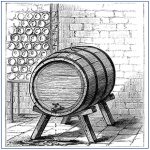Trusts Law – Considerations Whether to File for Divorce
Elective share, is one of the probate rules that apply when filing for divorce. Elective share is a statutory framework which exist in most states that says if you try to omit your spouse, or you have no will at all, it gives the spouse a basic equitable share of the decedent’s estate. This equitable share oftentimes is based off years of marriage.
Susan L. Anderson focuses her practice on estate planning, trusts, wealth preservation, charitable planning, and probate; on the administration and litigation fronts. As the former CEO and President of ING National Trust, Susan has a deep view and understanding of a myriad of trusts.
In this CLE class video clip, Susan L. Anderson, Esq. discusses Trusts Law – Considerations Whether to File for Divorce.
You can watch the complete Trusts Law CLE class here:
Trusts Law CLE
A spouse can also receive a percentage based on the augmented estate, meaning augmented, lengthened, more than just the probate estate. There are probate assets and non-probate assets. Non-probate assets are assets that bypass the probate systems, such as joint tenant and transfer on death, transfer on death deed, anything passing by trust, and beneficiary designation assets. Probate assets are the ones titled only in the decedent’s name and do not have any of other titles in place. An augmented estate takes into account all of the assets, both probate and non-probate.
It is important to make sure you are dealing an attorney who can talk to you about those items, if you’re trying to decide whether or not to divorce an individual. They can assist you in determining whether you would be better off financially staying married and availing yourself of those probate laws on a financial level.








